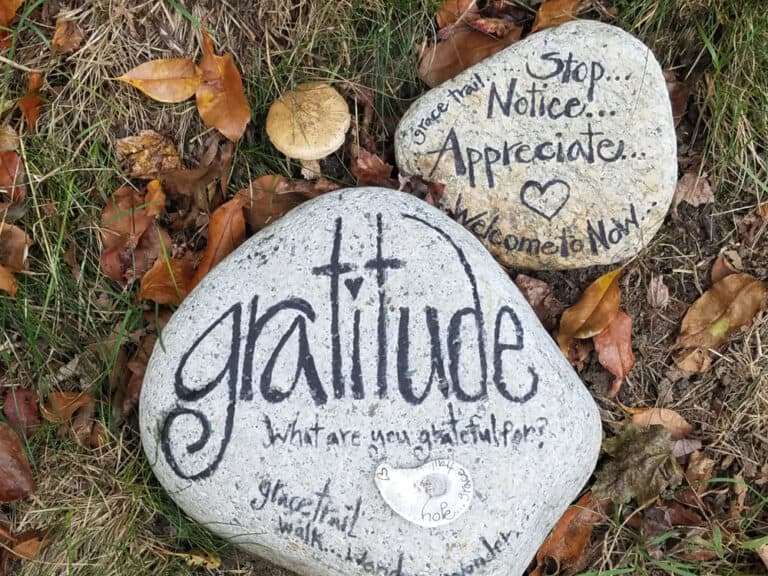When most people think of addiction treatment, they imagine medical detox, 12-step meetings, and traditional therapy. While these methods are effective for many, recovery is not a one-size-fits-all journey. True healing requires addressing the whole person—mind, body, and spirit. This is where holistic addiction treatment in Knoxville and beyond comes into play, offering alternative recovery therapies that go beyond conventional approaches.
Together, we’ll explore the concept of holistic recovery, why it’s more than just detox, and how integrating mind-body rehab techniques can lead to deeper, more sustainable healing.

What Is Holistic Addiction Treatment?
Holistic addiction treatment recognizes that addiction is not just a physical dependency but a complex condition that affects every aspect of a person’s life—physical health, mental well-being, emotional stability, and spiritual fulfillment. Unlike traditional approaches that focus narrowly on eliminating substance use, holistic recovery takes a broader, more compassionate view. It understands that addiction often stems from deeper issues such as unresolved trauma, chronic stress, emotional pain, or a lack of purpose.
Rather than simply treating symptoms, holistic recovery aims to restore balance in all areas of life, creating a foundation for lasting wellness. This means:
Spiritually—Encouraging self-discovery, connection, and purpose, whether through meditation, nature, or community support.
Physically—Supporting the body’s healing through detox, nutrition, exercise, and alternative therapies like acupuncture.
Mentally—Addressing co-occurring disorders (such as anxiety or depression) with therapy, mindfulness, and cognitive-behavioral techniques.
Emotionally—Helping individuals process trauma, build healthy coping mechanisms, and develop emotional resilience.
Key principles of holistic addiction treatment at Knoxville Recovery Center include:
- Treating the root causes of addiction (trauma, stress, mental health disorders)
- Incorporating alternative recovery therapies (yoga, meditation, acupuncture)
- Promoting whole-body wellness (nutrition, exercise, sleep)
- Encouraging spiritual and emotional growth (mindfulness, art therapy, nature-based healing)
Unlike traditional rehab models that prioritize abstinence alone, holistic recovery helps individuals build a fulfilling, substance-free life.
Why Detox Alone Isn’t Enough
Detoxification is a crucial first step in recovery—it serves as the body’s reset button, cleansing the system of toxic substances and managing the often challenging withdrawal symptoms that accompany substance cessation. This is where alternative recovery therapies can help.
Under medical supervision, detox helps stabilize physical health, reducing immediate risks and preparing individuals for the next phases of treatment. However, while detox addresses the physiological dependence on drugs or alcohol, it represents only the surface layer of recovery. The deeper, more complex work begins after detox because addiction is never just about the substance itself—it’s about the underlying psychological wounds, unresolved emotional pain, and disruptive social patterns that fuel addictive behaviors.
Many people relapse after detox because:
- They haven’t learned healthy coping mechanisms for stress or trauma.
- Underlying mental health conditions (anxiety, depression, PTSD) remain untreated.
- They lack a supportive community or purpose in sobriety.
Additionally, relapse can happen after detox because:
- Heal Trauma or Mental Health Struggles: Many individuals turn to substances as a way to self-medicate anxiety, depression, PTSD, or past trauma. Without therapy and emotional processing, these root causes remain unaddressed.
- Teach Coping Skills: Sobriety introduces new challenges—stress, boredom, triggers—that require healthy coping mechanisms. Detox doesn’t equip individuals with these essential tools.
- Rebuild Relationships or Social Support: Addiction often damages relationships and isolates individuals. Recovery requires repairing trust and building a sober support network, which detox alone cannot provide.
- Restore Purpose or Identity: Many people in active addiction lose their sense of self. True recovery involves rediscovering passions, values, and a life beyond substance use.
Without these critical components, individuals risk falling back into old patterns, no matter how thoroughly they detox. This is why holistic alternative recovery therapies—integrating therapy, emotional healing, lifestyle changes, and community support—are essential for sustainable recovery. Detox clears the path, but true healing requires walking it with intention, support, and a comprehensive plan for the mind, body, and spirit.

Alternative Recovery Therapies in Holistic Treatment
One of the most powerful and transformative aspects of holistic addiction treatment in Knoxville is its thoughtful integration of alternative recovery therapies alongside conventional treatment methods.
These innovative approaches don’t replace traditional counseling and medical care, but rather enhance and complement them, creating a multidimensional healing experience that addresses the complex nature of addiction. Where standard treatment might focus primarily on talk therapy and medication management, holistic programs recognize that true recovery requires engaging the whole person – mind, body, and spirit – through diverse therapeutic modalities.
These alternative therapies offer fresh pathways to healing that often resonate deeply with individuals who may have struggled with more conventional approaches. They provide non-verbal outlets for expression, somatic experiences that reconnect individuals with their bodies, and spiritual components that nurture the soul. Many clients find that these therapies help them access and process emotions that were previously locked away, discover new sources of joy and fulfillment in sobriety, and develop healthier coping mechanisms that don’t rely on substances. Some helpful modalities of alternative recovery therapies include:
1. Yoga and Mindfulness Meditation
Yoga and meditation are cornerstones of mind-body rehab, helping individuals reconnect with their bodies and calm their minds. Benefits include:
- Reducing stress and anxiety (common relapse triggers)
- Improving emotional regulation
- Enhancing self-awareness and discipline
Many rehab centers now offer trauma-informed yoga, which helps process stored emotional pain in a safe, controlled environment.
2. Acupuncture and Acupressure
Used for centuries in Traditional Chinese Medicine, acupuncture can aid recovery by:
- Reducing cravings and withdrawal symptoms
- Restoring energy flow (Qi) disrupted by addiction
- Promoting relaxation and mental clarity
3. Nutritional Therapy
Addiction often depletes the body of essential nutrients, leading to fatigue, mood swings, and poor mental health. A holistic recovery plan includes:
- Balanced, whole-food diets to repair physical damage
- Supplements to restore vitamin deficiencies
- Education on how nutrition affects mood and cravings
4. Equine Therapy (Horse-Assisted Healing)
Working with horses has been shown to:
- Build trust and emotional resilience
- Teach non-verbal communication skills
- Foster responsibility and self-confidence
5. Art and Music Therapy
Creative expression allows individuals to process emotions that may be difficult to verbalize. Benefits include:
- Reducing stress and depression
- Providing a healthy emotional outlet
- Encouraging self-discovery and healing
6. Nature and Adventure Therapy
Spending time in nature (hiking, gardening, wilderness therapy) within the framework of alternative recovery therapies can:
- Lower cortisol (stress hormone) levels
- Improve mood and mental clarity
- Reinforce a sense of connection to the world

The Role of Spirituality in Alternative Recovery Therapies
Spirituality plays a transformative role in alternative recovery therapies by helping individuals reconnect with a deeper sense of purpose and belonging—one that transcends their struggle with substance use. Unlike traditional religious frameworks (though it may include them), spirituality in recovery is about cultivating an inner compass, a connection to something greater than oneself—whether that’s nature, community, creativity, or personal values.
For many in recovery, addiction creates a void—a feeling of emptiness, isolation, or existential drift. Spirituality helps fill that void not with substances, but with meaning.
When individuals engage in spiritual practices—whether meditation, prayer, mindfulness, or service work—they begin to:
- Discover a renewed sense of identity beyond “addict” or “patient,” seeing themselves as whole, capable, and worthy of healing.
- Develop resilience by learning to sit with discomfort, uncertainty, and pain without needing to escape it.
- Foster gratitude and presence, shifting focus from past regrets or future anxieties to the possibilities of the present moment.
- Build connection—to themselves, others, and the world around them—counteracting the loneliness that often fuels relapse.
Research shows that incorporating spirituality into recovery can significantly reduce relapse rates. Why? Because it addresses the root of addictive behavior: the human need for purpose, belonging, and hope. Without these, sobriety can feel hollow, making relapse more likely.
At Knoxville Recovery Center, we honor each individual’s unique spiritual path, whether through guided meditation, nature therapy, 12-step principles, or personalized rituals. Our goal through alternative recovery therapies is to help you write a new story for your life, one where addiction no longer defines you.
Finding Alternative Recovery Therapies and Treatments in Knoxville, TN
If you or a loved one is seeking a truly holistic approach to addiction recovery, the Knoxville, TN area is home to several highly-regarded treatment centers that specialize in blending alternative recovery therapies with evidence-based traditional treatment methods. These innovative programs recognize that lasting healing requires more than just addressing the physical aspects of addiction – they focus on treating the whole person through a carefully curated combination of conventional and complementary therapies.
When researching holistic treatment options in East Tennessee, look for comprehensive programs that offer:
- Individualized treatment plans tailored to your unique history, needs, and recovery goals
- A balanced integration of clinically-proven therapies (like CBT and medication management) with alternative modalities
- Experienced practitioners specially trained in mind-body-spirit healing techniques
- Diverse therapeutic options such as acupuncture, yoga therapy, equine-assisted therapy, art therapy, and mindfulness practices
- Nutritional counseling to help repair the physical damage of addiction and support mental health
- Aftercare planning that prepares you for long-term success beyond treatment
The best holistic centers in Knoxville will welcome you with compassionate, non-judgmental care while providing the structure and expertise needed for deep transformation. Many offer serene, nature-adjacent settings that enhance the healing process, along with small client-to-staff ratios that ensure personalized attention.
Don’t settle for a one-dimensional approach to recovery. By choosing a program that honors all aspects of your being – physical, emotional, mental and spiritual – you give yourself the greatest opportunity for meaningful, lasting change. The right holistic treatment center can help you not just achieve sobriety, but rediscover joy, purpose and authentic wellness in your life beyond addiction.

Consider Knoxville Recovery Center for Alternative Recovery Therapies
If you or a loved one is ready to explore a recovery journey that heals mind, body, and spirit, Knoxville Recovery Center is here to guide you. Our alternative recovery therapies and programs blend evidence-based care with transformative alternative recovery therapies—from yoga and acupuncture to equine therapy and mindfulness—all designed to help you rebuild a vibrant, substance-free life.
You don’t have to walk this path alone. Call us today or contact us through our online form to learn how our personalized, compassionate approach can help you:
- Heal underlying trauma with therapies that go beyond traditional talk therapy
- Develop healthy coping skills through mindfulness, nutrition, and movement
- Rediscover joy and purpose in a supportive, nurturing environment
Take the first step toward lasting recovery. Contact Knoxville Recovery Center today. Your brighter future starts here.








